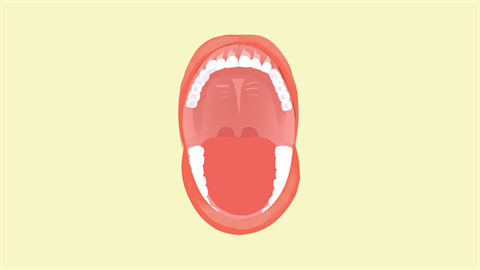What causes dry mouth and a bitter taste, and how can these be resolved?
Generally, dry and bitter mouth may be caused by aging, insufficient water intake, oral ulcers, chronic gastritis, diabetes, and other reasons. Treatment options, including general treatment and medication, can be adopted under the guidance of a doctor. If discomfort occurs, timely medical attention is recommended. A detailed explanation is as follows:

1. Aging
With age, the function of salivary glands gradually weakens, resulting in decreased saliva production, which can lead to dryness and bitterness in the mouth. Maintaining good oral hygiene habits and timely oral cleaning are necessary in daily life.
2. Insufficient Water Intake
When the body lacks sufficient water, saliva production may decrease, causing dryness of the oral mucosa and a sensation of dryness and bitterness in the mouth. It is important to replenish fluids regularly by drinking water or beverages with high water content.
3. Oral Ulcers
Oral ulcers may be related to the long-term consumption of spicy or irritating foods. Oral ulcers can damage the oral mucosa and reduce saliva secretion, while bacterial metabolic products may cause the aforementioned symptoms. Pain, ulcer redness, and swelling may also occur. Under a doctor's guidance, medications such as oral ulcer powder, watermelon frost throat tablets, and metronidazole oral adhesive tablets may be used for treatment.
4. Chronic Gastritis
Chronic gastritis is usually caused by Helicobacter pylori infection and unhealthy eating habits. It typically affects gastric acid secretion and digestive function, leading to dryness and bitterness in the mouth. Symptoms such as upper abdominal pain, nausea, and vomiting may also be present. Patients should follow medical advice to use medications like sucralfate tablets, hydrotalcite chewable tablets, and amoxicillin capsules to alleviate discomfort.
5. Diabetes
Diabetes may be associated with factors such as obesity and an improper diet. High blood sugar levels may lead to reduced saliva secretion, causing the aforementioned symptoms, which may be accompanied by increased thirst, frequent urination, and weight loss. Patients may follow medical recommendations to use medications such as insulin injection, gliclazide modified-release tablets, and metformin hydrochloride tablets to control blood sugar levels and alleviate symptoms.
In daily life, spicy and irritating foods should be avoided. Consuming fruits and vegetables rich in vitamins is recommended, along with maintaining good oral hygiene through regular tooth brushing, flossing, and using mouthwash to reduce bacterial growth in the mouth.








